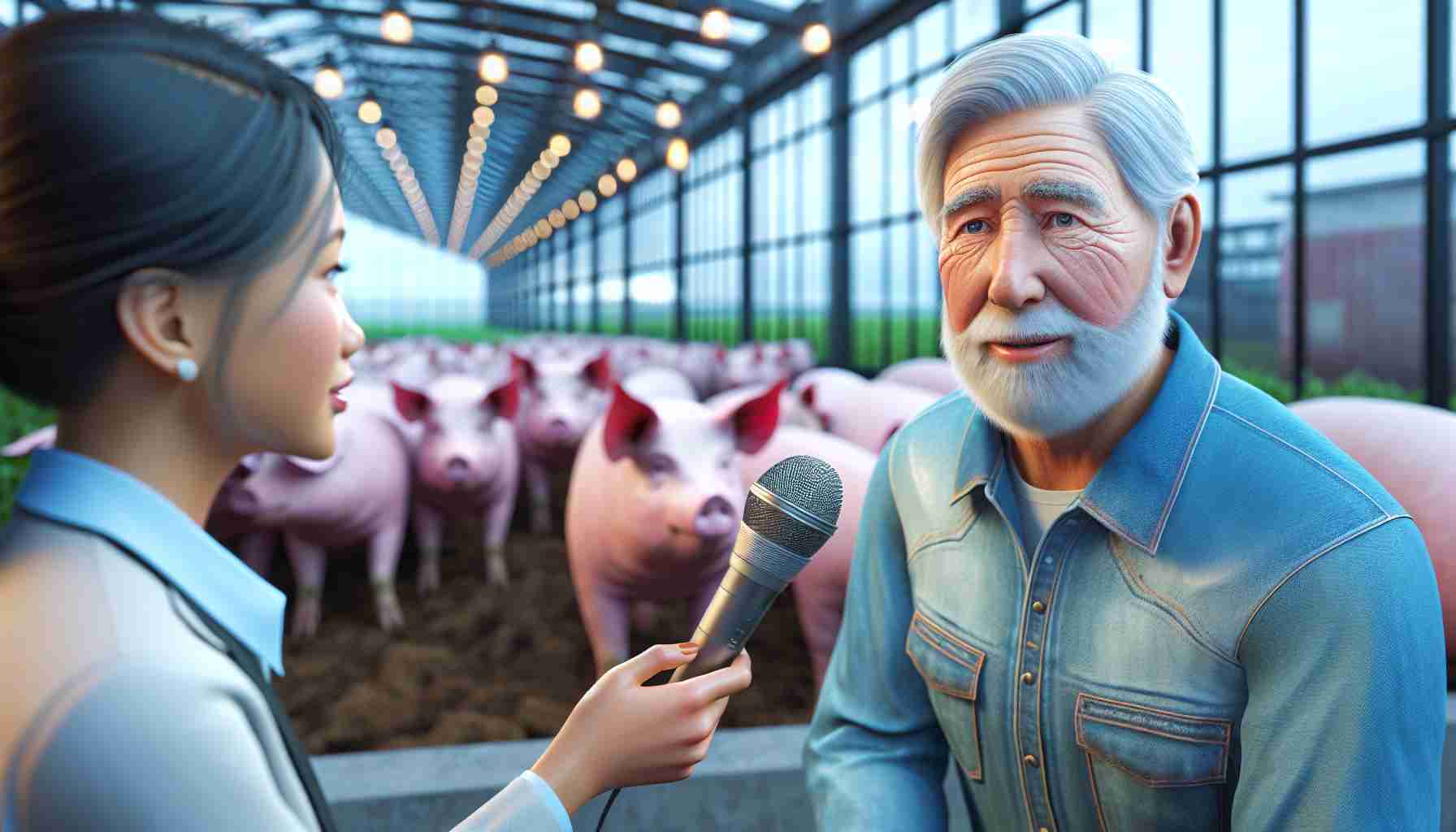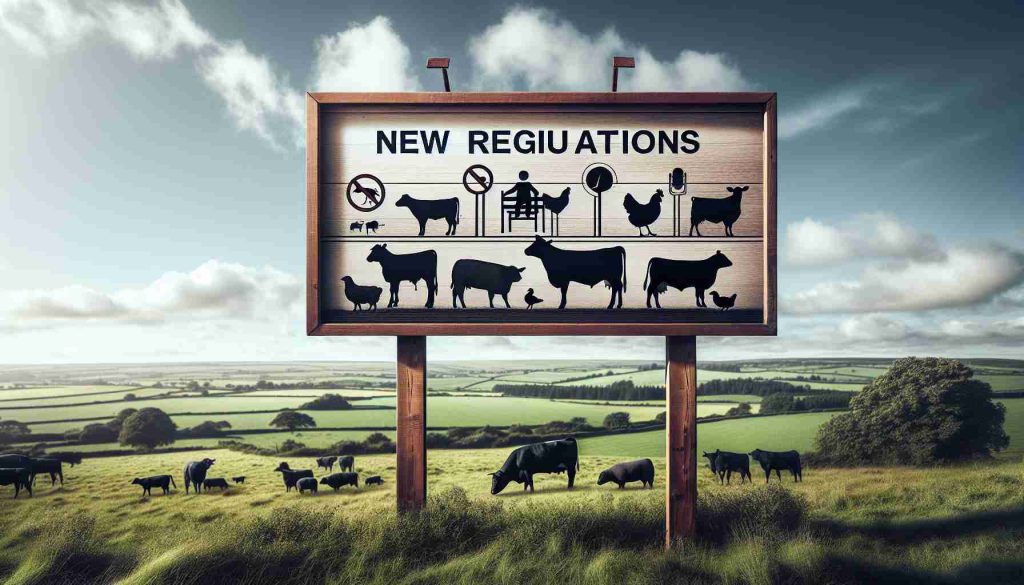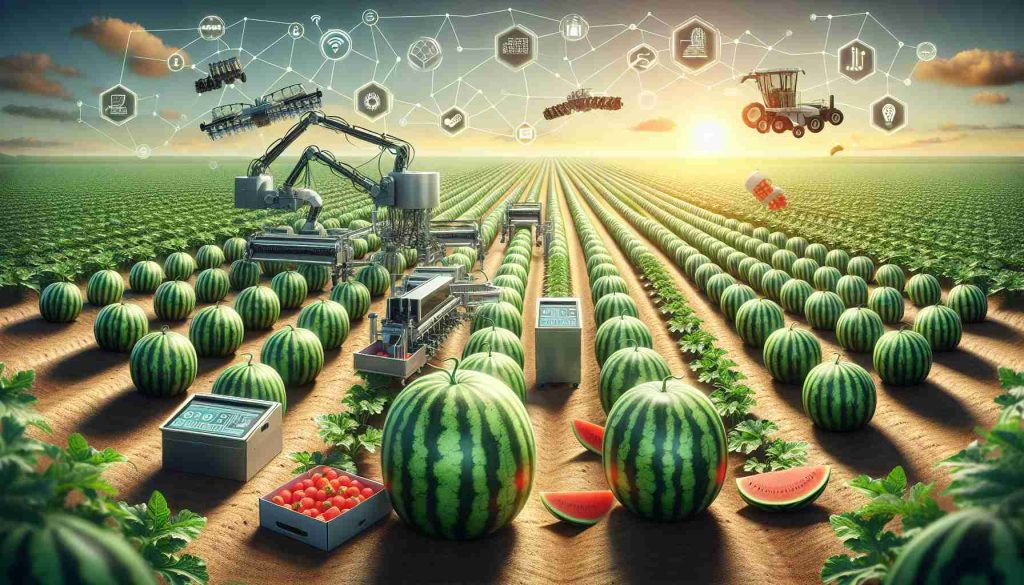Exploring the Evolving Landscape of Pork Production
Matt Gent, a prominent figure in the swine farming community, shared insights on the shifting dynamics of the pork industry in a recent interview. Discussing a myriad of challenges and opportunities, Gent highlighted the need for innovation and adaptation in modern pig farming practices.
Redefining Success in Pig Farming
Instead of focusing on traditional metrics of success, Gent emphasized the importance of sustainability and animal welfare in today’s pork production. By prioritizing ethical practices and environmental stewardship, he believes that the industry can pave the way for a more responsible approach to farming.
Innovations Driving the Future of Pork
From advanced biotechnology to data-driven decision-making, Gent underscored the role of innovation in shaping the future of swine agriculture. By embracing new technologies and practices, farmers can enhance efficiency and productivity while minimizing their environmental footprint.
Building Resilience in the Face of Challenges
While acknowledging the obstacles facing the pork industry, such as market volatility and regulatory pressures, Gent expressed optimism about the resilience of farmers. Through collaboration and continuous improvement, he believes that the industry can overcome challenges and thrive in the years to come.
Uncovering New Frontiers in Swine Agriculture: A Deeper Dive with Pig Farmer Matt Gent
As the swine agriculture sector continues to evolve, there are emerging trends and developments that are shaping the future of pig farming. In a follow-up conversation with Matt Gent, we explore additional insights that shed light on the path ahead for the industry.
What are the key technological advancements revolutionizing swine agriculture?
One significant development that has the potential to transform pig farming is the advent of precision livestock farming. This technology leverages sensors, data analytics, and automation to monitor individual animals’ health, behavior, and growth parameters in real-time. By utilizing this data-driven approach, farmers can optimize feed efficiency, disease management, and overall animal well-being.
Addressing Environmental Concerns in Swine Agriculture
While sustainability has been a focal point in discussions about the future of pork production, there is a growing emphasis on mitigating greenhouse gas emissions from pig farming. Innovative solutions such as methane digesters, which capture and convert methane from manure into renewable energy, are gaining traction as environmentally friendly practices in swine agriculture.
Challenges on the Horizon for Pig Farmers
One looming challenge for pig farmers is the ongoing debate surrounding antibiotic use in livestock. As concerns about antimicrobial resistance rise, there is increasing pressure to reduce antibiotics in animal feeds. Balancing the need for animal health and welfare with the necessity to curb antibiotic resistance poses a complex dilemma for the industry.
The Promise and Peril of Genetic Engineering in Swine Production
Advancements in genetic engineering hold promise for improving traits such as disease resistance, feed conversion efficiency, and meat quality in pigs. However, this technology also raises ethical concerns regarding animal welfare, biodiversity, and the potential for unintended ecological consequences. Striking the right balance between genetic innovation and ethical considerations remains a key point of contention in swine agriculture.
Advantages and Disadvantages of Intensive Indoor Pig Farming
Intensive indoor pig farming systems offer benefits such as efficient space utilization, controlled environments, and disease management. However, concerns about animal welfare, environmental pollution from manure accumulation, and antibiotic use in close quarters are drawbacks associated with this production method. Finding a sustainable balance between intensification and ethical farming practices is a critical challenge facing the swine agriculture industry.
For more insights on the latest trends and developments in pig farming, visit Swine Industry.













